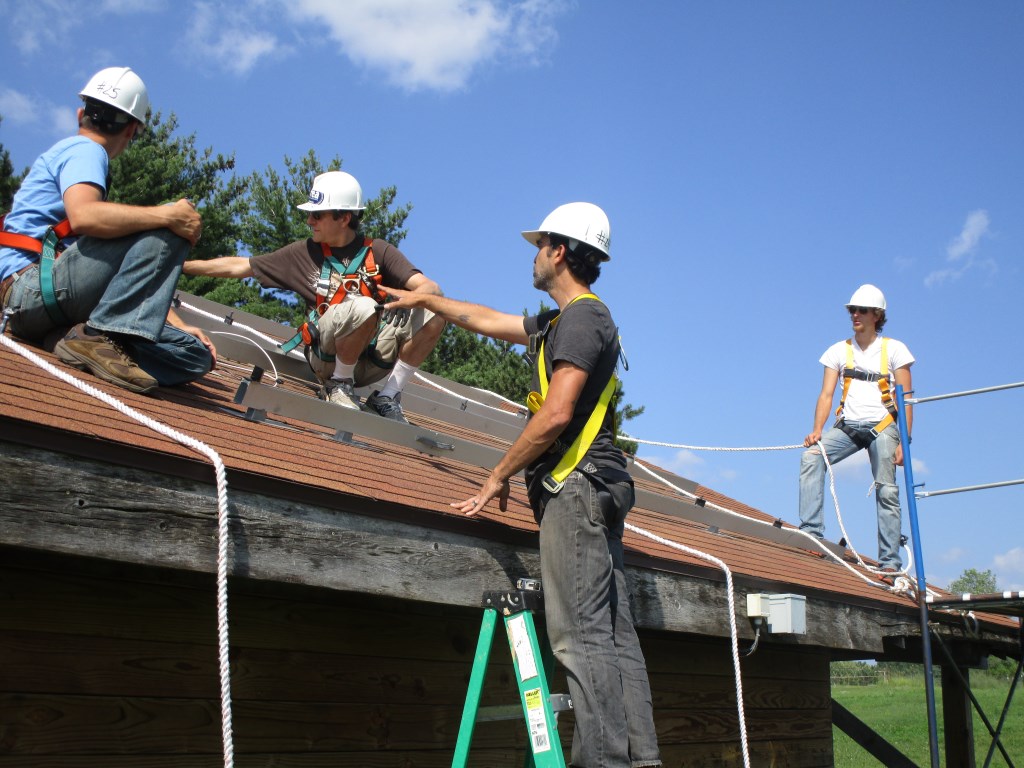State Regulators Allow Leased Solar Panels In Significant Ruling
But ruling, say regulators, is a one-off and doesn't help City of Milwaukee and others' issues.
A Stevens Point family can lease a solar panel array for their home from a private contractor and the contractor won’t be regulated as an electric utility, the Wisconsin Public Service Commission (PSC) decided Thursday.
PSC members voted 2-1 to issue a legal ruling that will declare that the contractor’s plan to install, own and maintain the proposed solar system on the family’s home would not subject the contractor to the same state laws that govern electric power companies.
Utilities opposed the petition, along with unions representing power company employees. They suggested it would open the door to more sweeping utility deregulation, a warning that advocates rejected.
The ruling is limited to the specific company and its customer identified in the petition. Thursday’s action marks the first time that the PSC has directly addressed the question of how certain kinds of private, on-site power generation systems should be treated under Wisconsin utility laws.
Such localized power systems, called Distributed Energy Resources (DER), are also connected to the public electrical grid. Instead of owning and managing the system themselves, some property owners opt for third-party power generation or financing for their on-premises power system — the DER.
For renewable energy advocates, third-party solar power enables property owners to more easily convert to solar for their buildings without facing steep initial costs for installing panels and related components. Instead, an outside contractor builds and manages the system, selling the power it generates or leasing the system to the property owner
“Many residents and businesses cannot afford the upfront costs of solar, but would very much like to have solar to produce clean energy and lower their utility bills,” wrote Elizabeth Ward, Wisconsin director for the Sierra Club, in a June 15 statement to the PSC supporting the Vote Solar petition. “The lack of legal clarity on third party solar creates a constraint for property owners to produce energy that they themselves would use.”
Ward wrote that in low-income communities, “the lack of wealth has caused great disparities in adopting solar, and many who would benefit most by reducing their energy bills cannot do so.”
In addition to electric utility companies, legalizing third-party systems has been opposed by construction unions.
“The only people who economically benefit from Third-Party DER is the private company that owns the equipment and sells the power to the property owner, and (possibly) the property owner,” wrote Emily Pritzkow, executive director of the Wisconsin Building Trades Council, in a comment urging the PSC to reject the Vote Solar petition.
“Third-Party DER systems are installed primarily by untrained, out-of-state, transient, and low-wage workers,” Pritzkow wrote. “That means the hard-working Wisconsinites in the building trades losing their current energy-sector jobs will have fewer opportunities to transition to the renewable energy industry.”
At Thursday’s PSC meeting, Republican commissioner Ellen Nowak called Vote Solar’s request an attempt to change Wisconsin law. “We have repeatedly denied similar requests in the past, noting that this is for the Legislature to decide and we lack the authority to give Vote Solar what it seeks,” Nowak said.
But PSC chair Rebecca Cameron Valcq said the specific case that was the subject of the petition was within the commission’s authority.
“All that is before us is a declaratory ruling on the particular facts that have been developed,” Valcq said. Under Wisconsin law, “we absolutely do have the authority to take a look at the specific facts before us.” She said that a declaratory ruling would apply only to the family mentioned in the petition and their contractor.
The third commissioner, Tyler Huebner, who like Valcq was appointed by Gov. Tony Evers, voted with Valcq for a ruling limited to the specific case the petition cited.
While limited to that instance, solar advocates saw the ruling as opening the doors to more widespread adoption of solar power.
“It’s no coincidence that the states with the most solar energy also explicitly allow third-party ownership, making it easier and more affordable for more residents and businesses to use solar energy,” said Chelsea Chandler, climate, energy and air program manager for Clean Wisconsin, in a statement. “This confirmation by the PSC that solar financing is allowed in our state will help Wisconsin meet its ambitious climate goals while helping Wisconsin families, schools, houses of worship, and municipalities benefit from affordable clean energy, even if they can’t afford to pay upfront.”
Company may install, lease solar panels without being a utility, PSC rules was originally published by the Wisconsin Examiner.






















